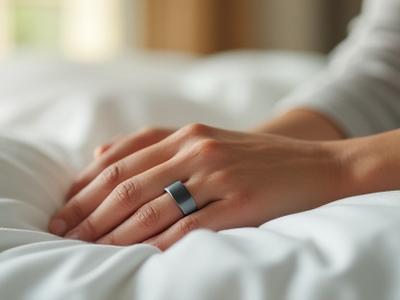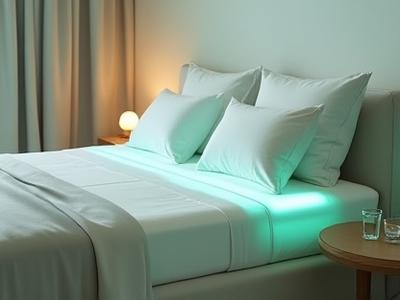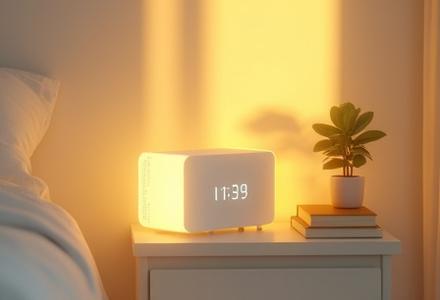The Biohacker's Guide to Sleep Optimization
Go beyond '8 hours a night.' Learn evidence-based strategies for truly restorative sleep.
Good sleep isn't a luxury; it's a performance tool. It's time to master yours effectively. As we navigate the demands of life past 35, quality sleep becomes paramount for hormonal balance, efficient recovery, and peak cognitive function. This Foxfire Focus guide will explore the science of sleep optimization, covering everything from creating the perfect sleep routine to leveraging cutting-edge biohacking gadgets for deeper, more restorative rest.
The Perfect Evening Sleep Routine
A step-by-step checklist for an ideal wind-down routine.
90 minutes before bed: Transition away from blue light. Turn off screens (phones, tablets, TVs) and switch to reading a physical book or listening to calming music under soft, warm, red-spectrum lighting.
60 minutes before bed: Take a warm bath or shower. The slight increase in body temperature followed by a natural cool-down signals to your body that it's time to prepare for sleep.
30 minutes before bed: Engage in light reading (non-stimulating content) or reflective journaling. Avoid anything that might cause stress or excitement.
10 minutes before bed: Practice a guided meditation or simple breathing exercises. Focus on slow, deep breaths to calm your nervous system and prepare your mind for rest.
Top 3 Gadgets for Better Sleep

Sleep Tracking Rings
Discover personalized insights into your sleep stages, heart rate variability, and recovery. Track your progress and understand what truly benefits your rest. Foxfire Focus recommends exploring devices like the Oura Ring.
Learn More
Temperature Regulating Mattress Pads
Optimal sleep requires a cool environment. Devices like ChiliPad or Ooler actively regulate your bed's temperature, ensuring you stay in the ideal thermal zone throughout the night for deeper sleep cycles.
Read Review
Smart Alarm Clocks
Wake up refreshed, not startled. These clocks monitor your sleep to rouse you during your lightest sleep phase, often simulating a sunrise to gently ease you into your day. Recommended models include the Philips Somneo.
Explore OptionsSupplements for Sleep: What Actually Works?
An evidence-based look at popular sleep-promoting compounds beyond the usual.
Magnesium
Magnesium is an essential mineral involved in hundreds of bodily reactions, including those that support relaxation and sleep. It helps activate the parasympathetic nervous system, leading to a calmer state more conducive to sleep. We recommend magnesium glycinate for its high bioavailability and gentleness on the digestive system.
L-Theanine
Found primarily in green tea, L-Theanine is an amino acid known for its ability to promote relaxation without causing drowsiness. It can increase alpha brain waves, associated with a state of 'wakeful relaxation,' making it easier to fall asleep and improving sleep quality.
Apigenin
A natural flavonoid abundant in chamomile, apigenin has mild sedative effects. It binds to GABA-A receptors in the brain, similar to benzodiazepines, which can reduce anxiety and initiate sleep without significant side effects.
Glycine
Glycine is an inhibitory neurotransmitter that can help lower core body temperature, a key mechanism in signaling the body to prepare for sleep. Studies suggest that glycine supplementation can improve sleep quality, reduce daytime sleepiness, and enhance cognitive performance.
Consult Your Doctor: While these supplements are generally well-tolerated, it is crucial to consult with your healthcare provider before starting any new supplement regimen, especially if you have underlying health conditions or are taking other medications. Foxfire Focus provides information for educational purposes only and does not offer medical advice.

Download Your Ultimate Sleep Hygiene Checklist
Get our comprehensive, one-page checklist crafted by wellness experts to optimize your bedroom and routines for perfect, lasting sleep. It's concise, actionable, and ready to transform your nights.